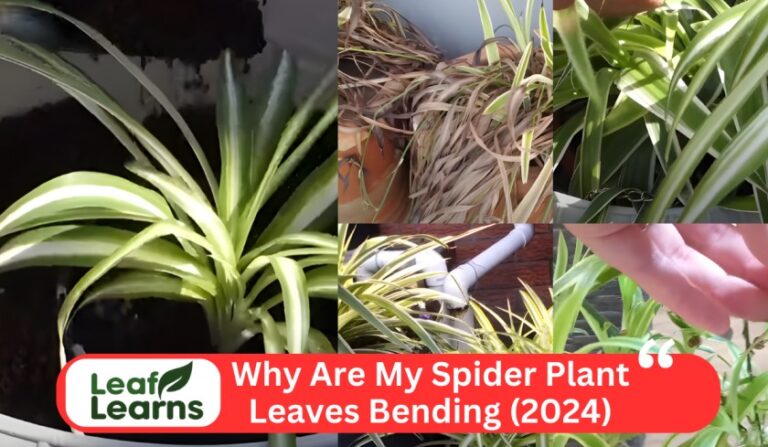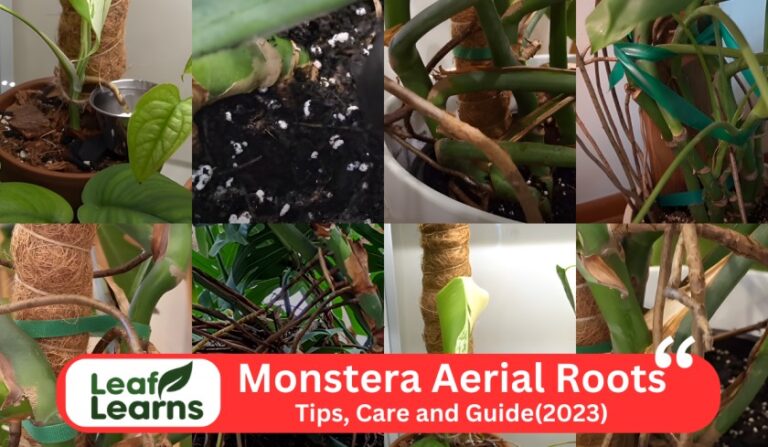Why Is My Succulent Plant Dying? 7 Reasons and How to Fix It
Succulent plants, which are famous for their outstanding beauty and toughness, could confuse their carers with signals of degradation.So Why is my Succulent Plant Dying is the main question to describe the life span of this plant. Succulents have a variety of advantages, including their ability to clean interior air and the need for minimal maintenance. But when a succulent plant starts to wilt, the results can be depressing.
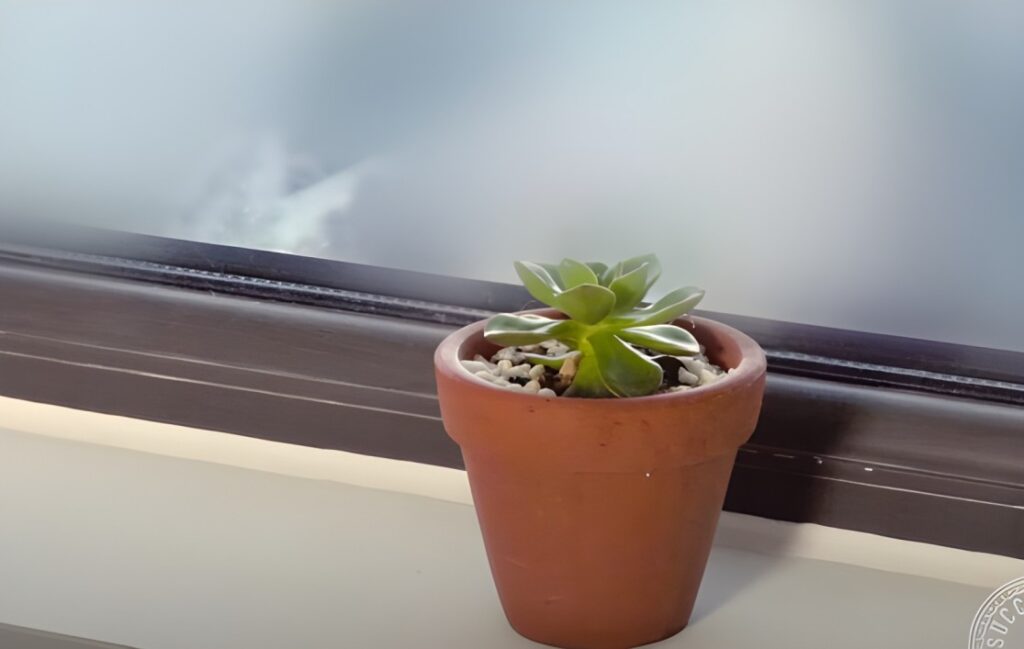
Over watering, insufficient sunshine, poor soil quality, and insect infestations are typical causes of a dying succulent. Although succulents are well known for their capacity to store water, different species have different life spans, with some spanning for many years. Succulents may flourish with the right care, adding beauty and peace to any location.
Contents
Why Is My Succulent Plant Dying
Over Watering
A common killer of succulents is over watering. Too much soil moisture causes root rot, which kills the plant.
Water your succulent sparingly to prevent this and make sure the soil cures out between each watering.
Under Watering
On the other hand, succulents can potentially suffer from inadequate irrigation.
Remember to water these plants when the top inch of the soil feels dry because they require some moisture to grow.
Lack Of Sunlight
Succulents love sunlight. Plants that are spread out and have insufficient light might find it hard to live.
Put your succulents where they may get morning sun or strong, indirect sunshine.
Improper Soil
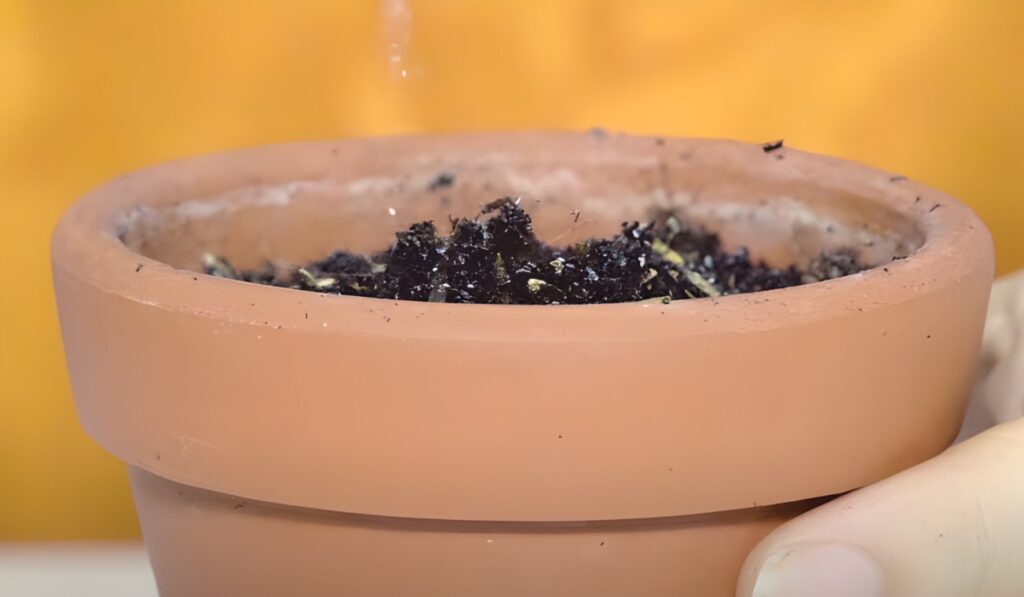
It depends on what kind of soil your succulent is placed in. Standard potting soil is insufficient for succulents; they require sandy, well-draining soil. To protect their health, use a variety of succulents or cacti.
Poor Drainage
For succulents, proper drainage is essential. Root rot is probable if the pot lacks drainage holes or if water collects at the bottom.
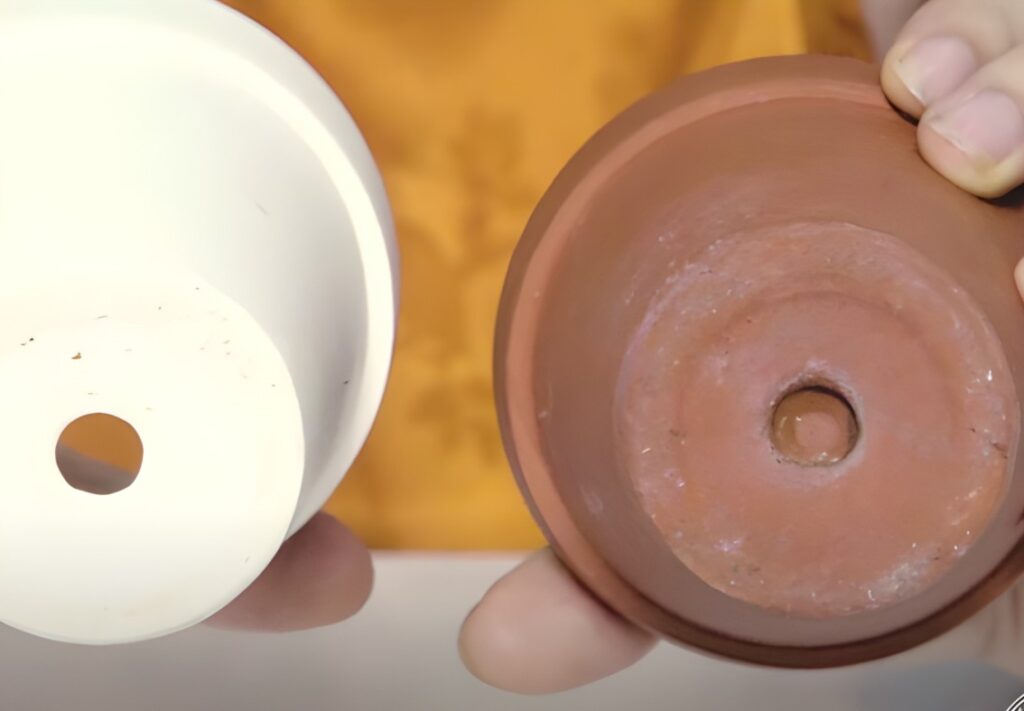
For the continued success of your succulents, always promise proper drainage.
Pests
Succulents may get harmed or even killed by pest infestations such as mealybugs, aphids, and spider mites.
Check your plants regularly for symptoms of infestation and take steps to eradicate pests.
High Temperature
While succulents like the heat, extreme heat can be harmful to plants.
To avoid damage, shield your plants from intense heat and offer some shade during the warmest hours of the day.
How To Fix My Dying Succulent Plants
Cut Back on Watering
Cutting back on watering can be the first step to fixing your dying succulent plants. Overwatering is a frequent cause of succulent problems.
Allowing the top inch or two of soil to dry out between watering is essential to avoid root rot in succulents since they need well-draining soil. To keep your succulents, water them less frequently.
Repot in Fresh Soil
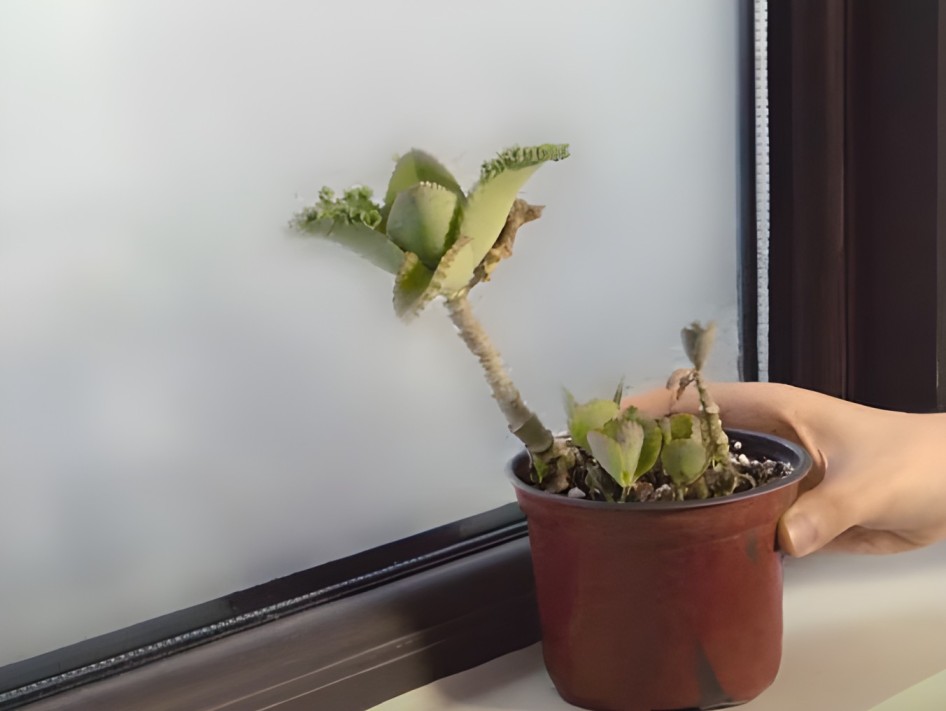
Repotting your succulent in new soil could prove really beneficial. It’s important to use a well-draining mix made especially for succulents and cacti.
Better root health is ensured, and moisture retention that might cause rot is avoided. Before planting after repotting, look for any signs of root rot and remove any infected roots
Water Deeply
Succulents flourish from deep irrigation as opposed to frequently shallow watering. When watering, be sure to soak the soil completely until the surplus water drains from the bottom.

Deep watering promotes healthy root development and improves your succulent’s ability to absorb moisture.
Increase Light
Bright, indirect sunshine is ideal for succulents. If your succulent is having trouble, it could not be getting enough light.
A position with greater light, ideally for at least six hours every day, is where you should put your plant. Your succulent will grow better in an area with filtered sunlight or an east-facing window.
Treat for Pests
Your succulent plants might suffer damage from pests like mealybugs, aphids, and spider mites.
Check your plant frequently for symptoms of infection, such as webbing or discoloration, in order to recover a dying succulent.
In order to stop additional damage, treat your succulent if you see pests with the proper treatment, such as neem oil or insecticide soap.
How Do I Know My Succulent Plant Are Dying?
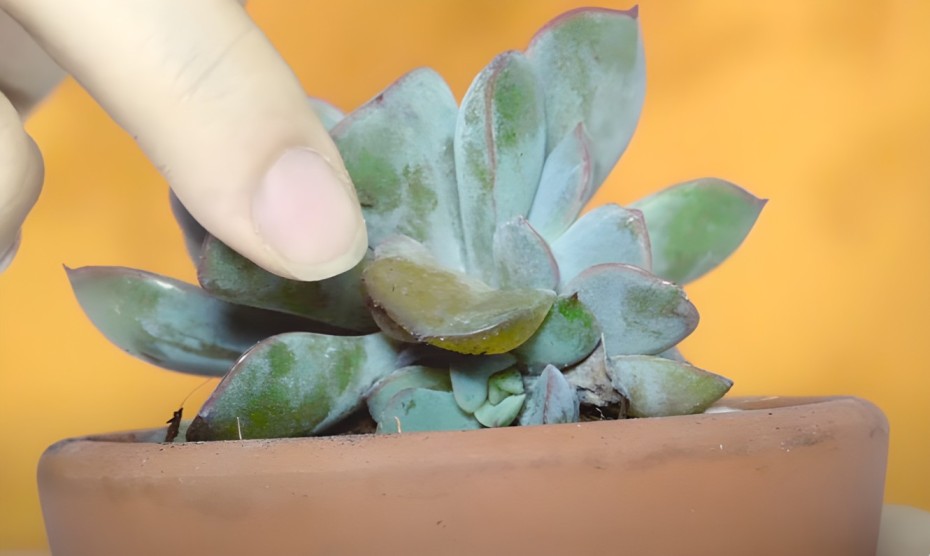
Succulent Leaves Or Stem Turning Brown, Yellow, Or Black
It’s a sign of trouble if you’ve observed your succulent’s leaves or stem becoming brown, yellow, or black.
This discoloration often indicates excessive irrigation or insufficient sunshine. To revitalize your succulent, alter your watering routine and give it more indirect sunshine.
Brown Spots On The Leaves Of The Succulent Plant
Succulent leaves may develop brown stains as a result of bacterial or fungal problems.
Remove the impacted leaves, make sure there is adequate ventilation, and stop overhead watering to fix this. Utilize soil that drains effectively to avoid moisture buildup.
Leaves Become Black And Mushy
Over watering or exposure to low temperatures are the usual causes of succulent leaves becoming black and soggy.
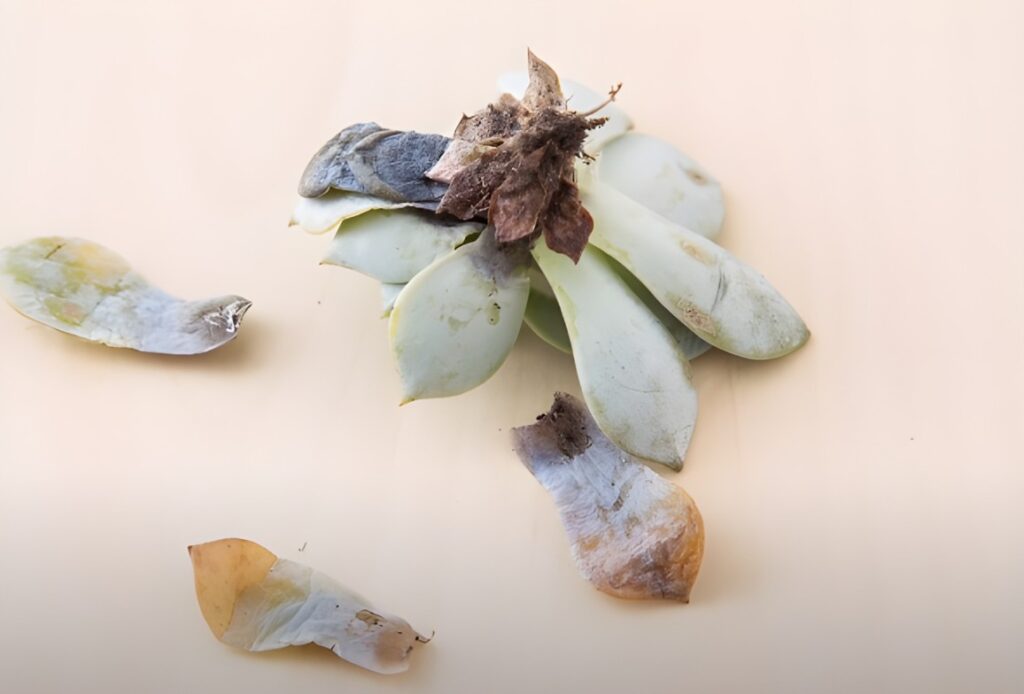
Reduce watering and keep your succulent out of the chilly temps if you want to save it. Repotting in soil with good drainage might also be beneficial.
Succulent Plant Losing Its Leaves
Your succulent may be losing its leaves as a result of stress, bugs, or drowning. Check your plant for insect indicators and change the way you water it. The appropriate environment and care might aid in your succulent’s leaf recovery.
How Do You Save A Dying Succulent?
Observe the state of the succulent before saving it. If the soil has been overwatered, let it totally dry up before watering it again. Water consistently and deeply if submerged.
Make sure the plant gets enough sunshine, and deal with insect infestations right away. If the roots are decaying, repot them and remove any abnormal growth. And these all the process is the answer of Why Is My Succulent Plant Dying.
Cycle of My Succulent Plant’s Demise: A Tale of Dying Foliage
“Why is my succulent plant always dying, and why are my succulent plants dying so frequently? It’s a puzzle as I watch my succulent plant dying back, even in January, during the harsh winter. The leaves are turning yellow and dying, going brown, making me wonder if my succulent plant is just dying too quickly.
With its roots dying and a Reddit community unable to help, it feels like my succulent plant is only dying. Is there a way to revive a dying succulent plant or save an over watered succulent plant? I’ve tried, but my succulent is still dying, indoors and out, and it’s like my succulent’s health is permanently on the edge.
I can’t help but wonder why my succulent is dying, with 0-degree temperatures or 90cm tall; it’s as if my succulent plant is sending me a cryptic message. I keep asking, ‘Why is my succulent plant dying?’ Yet, there’s no easy answer, leaving me to contemplate why is my succulent dying from the bottom up and whether I can save it after repotting.”
FAQs
How do you revive a dying succulent?
Allowing the soil to dry between watering, ensuring adequate sunshine, repotting if necessary, and treating for pests, if present, can all help revive a withering succulent.
Do succulents need direct sunlight?
Yes, succulents need direct sunlight for at least 6 hours a day to thrive as it aids in their growth and vibrant color.
What does an over watered succulent look like?What does a sick succulent look like?
A succulent that has been overwatered has mushy, transparent leaves and may even be showing evidence of root rot. Wilting, discoloration, and indications of insect infestation or disease are all present in a sick succulent.
How long can succulents go without water?
Due to their ability to retain water in their leaves and roots, succulents may spend up to two weeks without water. It’s important to keep an eye on their individual needs and adjust watering as necessary.
Can succulents recover from overwatering? How long do succulents live?
Succulents can recover from overwatering if the problem is dealt with quickly by letting the soil dry, removing the damaged leaves, and changing watering practices.
Succulents’ life spans vary depending on the species, but with good care, they may survive for many years, sometimes more than 10.


